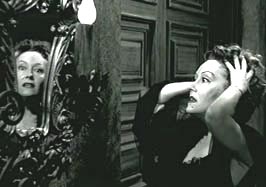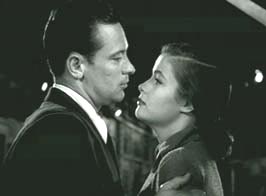why yes, i am a 60-year-old gay man
 As I was driving back from the San Diego City Book Fair this weekend, listening to the Sunset Boulevard stage musical soundtrack (featuring the sexy-voiced Kevin Anderson), I had an epiphany:
As I was driving back from the San Diego City Book Fair this weekend, listening to the Sunset Boulevard stage musical soundtrack (featuring the sexy-voiced Kevin Anderson), I had an epiphany:Norma Desmond has called my office dozens of times.
She’s also approached my organization’s booth at lots of book fairs, asking questions like, “Do you want to hear me recite my epic science fiction poem?” But for the grace of sometime-stardom, Norma would be one of the loony minions who show up at public events in search of fresh blood to inflict their egos and idiosyncrasies on. I’ve mostly come into contact with the literary loony minions—at the SD book fair, there was the guy with the tall walking stick who smelled like peanut butter, and the guy who told everyone who’d listen about how world peace could be achieved by holding hands (interestingly, his left hand was bandaged—workplace injury?). But I know they exist in every subculture.
Sunset Boulevard is one of my favorite movies, and even though I’m not a huge fan of Andrew Lloyd Write-One-Song-And-Reprise-It-15-Times Webber, I like the musical version a lot too. So, on the 5 North, I asked myself, What is it about this story that’s so appealing to me, besides Kevin Anderson’s sexy voice?
Conventional wisdom says that Norma is appealing because she’s glamorous, crazy and presents a cautionary tale: Here’s what could happen if you live in the past. Her tale is scary, too, because it’s not just a result of her own vanity but of circumstance—the world could fall in love with any of us, and it could forget about any of us. That’s the thrill of Hollywood. That’s why we read Us Weekly.
But I started to feel like Norma was probably always nutty; fame was just something that swooped down and put a very attractive veil—or seven Salome veils—over her for a little while.
Then I felt like that conclusion said something about me—something cynical and unpleasant, like “People never change.” We’re supposed to relate to Joe Gillis (played by sexy-voiced Kevin Anderson. I have a thing for sexy voices), the struggling screenwriter who sells out to become Norma’s screenwriting coach and then her kept man. We’re supposed to relate to him because he has to make a choic
 e.
e.But I actually relate to Betty Schaefer, the screenwriter who says hopeful things like, “They still make good pictures!” and encourages Joe to remove car chase scenes from his script. Betty is innocent and hardworking and blindly determined and pretty damn boring. It would never occur to Betty to shack up with some freak who employs her ex-husband as a butler, and so Betty will never be the main character.
It’s okay, I’m at peace with my boring Betty Schaefer-ness. But I hope that my conclusions about Norma teach me not to dismiss the book fair loonies of the world too quickly. I don’t know, though—is anyone really nicer to nerds after seeing Napoleon Dynamite? I hope I won’t instead start dismissing some of fiction’s most interesting characters with a smug “Stop wallowing and get a job, you old loony” attitude.
And, also, I hope I can be brave enough to be Norma sometimes: big and fragile and impractical and self-promoting and in love with the world’s magical possibilities.



Comments
I've never seen Baby Jane. For a 60-year-old gay man, there are a lot of gaps in my knowledge of the classics.